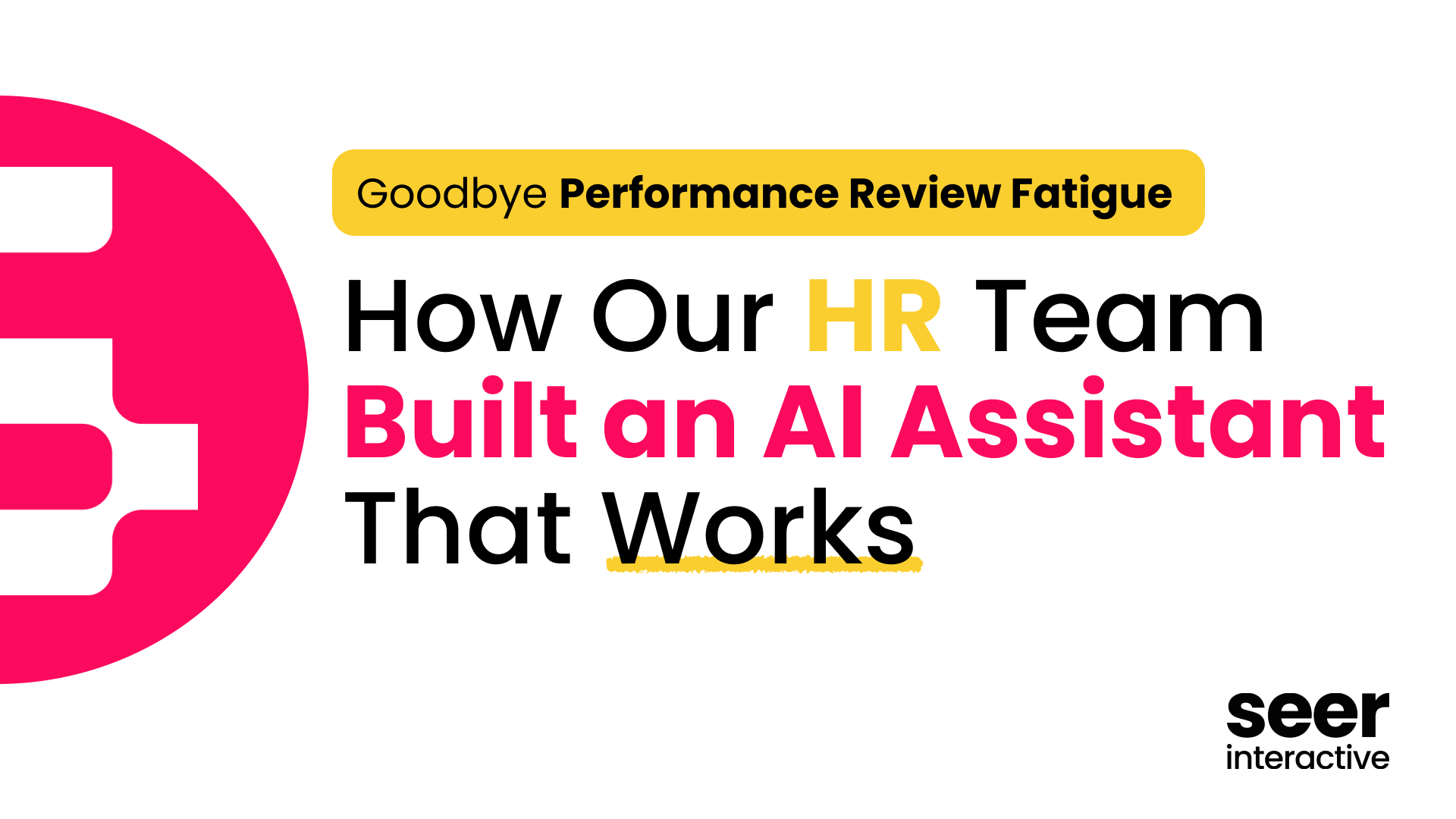With a lot of our tasks shifting to online: grocery shopping, schooling, doctor appointments, it’s no surprise that event planners and companies have found a way to adapt to this new way of living to bring together audiences through virtual conferences.
A virtual conference should be no different than an in-person one, in terms of the value you bring to the attendees and your business.
Although it may not feel like it at first, there are many advantages to hosting a virtual event: you’re not barred down to a location, you can tap into new audiences you haven’t before, and even save money. There are many types of events you can transform into an online experience, to name a few:
- Trainings/Classes
- Webinars
- Interviews/Live Q&As
- Speaker Conferences
As we start planning a virtual Seerfest 2020*, we wanted to share a guide with you all as more companies are finding themselves planning for virtual events.
💡 *Sign-up for our Events newsletter to be notified when early bird tickets are released!
In this post, you'll learn how to:
Put Your Thoughts On Paper
Before jumping into any event, we must plan and if this is your first time hosting a virtual conference like us, you can never do too much planning.
As you begin to map out your goals and dreams for your virtual conference, there are a few key things to remember as you bring your in-person brand experience online:
- Anticipate issues: This is a new format for so many companies and marketing teams. Make sure to anticipate potential pain points in your attendees' experience -- what can you do to prevent these?
- Interaction: Keep this top-of-mind as you map out your agenda, speaker format, and decide on which platforms to leverage. No one wants to sit behind their computer and listen to someone else talk for hours (especially us remote workers who already have to do this everyday!)
How to Create & Plan a Virtual Conference: Step by Step
- What do I want the attendee to walk away with?
- How does this conference align with my business goals?
- What audience will resonate best with what you’re trying to convey?
- What do they want to walk away with?
Now that we defined our audience and goals, let’s get into the nitty-gritty. Honestly, this section deserves a separate post of its own as there are so many key components to discuss when laying out the logistics of any event.
When settling into the plan for your virtual conference, here are a few things you'll need to quickly get a grasp on:
Choose Your Speakers Wisely
We know that we want our attendees to leave our virtual conference feeling inspired, enlightened, and heard. It’s time to find speakers who can bring that to the forefront.
- Who in your network is a thought leader in your industry?
- How many speakers is too many? What’s your budget?
- What level of participation should be required with the audience?
- How much freedom does the speaker have in terms of content? Are you assisting in that process?
Create A Clear Agenda
Like an in-person event, having a clear agenda will allow you to identify gaps and anticipate any shortcomings on the day of.
- What is the official date?
- What is the scheduling?
- How long are the speaker presentations?
- How will the audience engage with speakers? Will there be a Q&A?
Find The Right Virtual Event Tech
This is key, you’re only as good as your hardware here. We recommend that you shop around heavily and reach out to colleagues who have hosted virtual conferences to understand which types of technology have and have not worked well for them.
Release a survey to your community asking them about their virtual conference experience, be sure to ask what platform they have used, and what could have worked better. This will help you when determing how you want to use your own technology.
Most importantly, look to your virtual event platform provider as a resource and not just a tool. Here are a few options we've seen used:
Prepare Promotional Assets
Assets are key to connecting your new conference experience to your brand. This is how attendees will familiarize themselves with your brand and your event so make a good first impression!
A few assets to consider creating:
- Micro-site and/or landing pages (try Unbounce or other similar WYSIWYG builders for ease of use)
- Branded presentations (use Google Slides so last minute edits aren't an issue -- also if you want to track viewership outside of your event platform)
- Promotional materials: speaker announcements, social media graphics, etc. (we like Canva for this!)
Now that you have your event platform picked out, your speakers are confirmed, and you have a clear agenda on your landing page -- use your creative assets to let the world know about your upcoming virtual event.
There are many ways to promote and highlight your upcoming virtual conferences:
- Create an email drip campaign targeting your current subscribers. Send sneak peaks and teasers to entice them to register.
- Leverage social media, groups, and forums to get the word out and create a community around your event topic.
- Work with your speakers on sharing the event with their networks -- cross-promotion often creates the most traction.
Great Examples of Virtual Conferences
There's not a one size fits all to virtual conferences, each brand tries to bring their own unique touch, but here are a few we enjoyed attending this year:
In Conclusion
There are things that can and will go wrong -- it's inevitable (just like in-person conferences). Taking the time to properly prepare and plan in advance will set you apart from other virtual events.
And needless to say, our inboxes have been bombarded with webinars, live Q&A's, etc. these last few months -- sticking out is crucial for virtual conference success.
All in all, just remember:
- Bring value to any event you throw (you are asking someone to spend 1+ hours with you -- make it worth their while!)
- Don't be afraid to ask your audience for their input to anticipate issues and ensure the best experience.
- Find a reliable event platform for attendees to interact and connect during the big day (no one wants to be talked at, they want to be a part of the conversation!)







